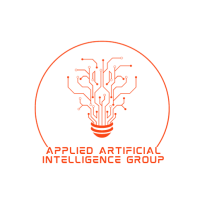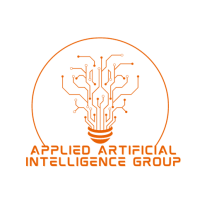Relation Extraction
by: Anushka Swarup
Description
Relation extraction (RE) is the task of identifying relationships between target nouns within textual data. As a core component of Information Extraction, RE has widespread applications, including knowledge base creation, question answering, biomedical interaction extraction, and financial data forecasting and analysis. This project aims to develop relation extractors that are robust in handling complex data characteristics, such as contextual ambiguity, limited data availability, and one-to-many associations.
Publications
Swarup, Anushka; Pan, Tianyu (Bell); Wilson, Ronald; Bhandarkar, Avanti; Woodard, Damon L.
LLM4RE: A Data-centric Feasibility Study for Relation Extraction Conference Forthcoming
The 31st International Conference on Computational Linguistics (COLING 2025), Forthcoming.
@conference{Swarup2024LLM4RE,
title = {LLM4RE: A Data-centric Feasibility Study for Relation Extraction},
author = {Anushka Swarup and Tianyu (Bell) Pan and Ronald Wilson and Avanti Bhandarkar and Damon L. Woodard},
year = {2024},
date = {2024-12-01},
urldate = {2024-12-01},
booktitle = {The 31st International Conference on Computational Linguistics (COLING 2025)},
keywords = {},
pubstate = {forthcoming},
tppubtype = {conference}
}
Swarup, Anushka; Bhandarkar, Avanti; Dizon-Paradis, Olivia P.; Wilson, Ronald; Woodard, Damon L.
Maximizing Relation Extraction Potential: A Data-Centric Study to Unveil Challenges and Opportunities Journal Article Forthcoming
In: IEEE Access, vol. 12, pp. 167655-167682, Forthcoming, ISSN: 2169-3536.
@article{Swarup2024Maximizing,
title = {Maximizing Relation Extraction Potential: A Data-Centric Study to Unveil Challenges and Opportunities},
author = {Anushka Swarup and Avanti Bhandarkar and Olivia P. Dizon-Paradis and Ronald Wilson and Damon L. Woodard},
doi = {10.1109/ACCESS.2024.3494737},
issn = {2169-3536},
year = {2024},
date = {2024-01-01},
urldate = {2024-01-01},
journal = {IEEE Access},
volume = {12},
pages = {167655-167682},
abstract = {Relation extraction is a Natural Language Processing task that aims to extract relationships from textual data. It is a critical step for information extraction. Due to its wide-scale applicability, research in relation extraction has rapidly scaled to using highly advanced neural networks. Despite their computational superiority, modern relation extractors fail to handle complicated extraction scenarios. However, a comprehensive performance analysis of the state-of-the-art extractors that compile these challenges has been missing from the literature, and this paper aims to bridge this gap. The goal has been to investigate the possible data-centric characteristics that impede neural relation extraction. Based on extensive experiments conducted using 15 state-of-the-art relation extraction algorithms ranging from recurrent architectures to large language models and seven large-scale datasets, this research suggests that modern relation extractors are not robust to complex data and relation characteristics. It emphasizes pivotal issues, such as contextual ambiguity, correlating relations, long-tail data, and fine-grained relation distributions. In addition, it sets a marker for future directions to alleviate these issues, thereby proving to be a critical resource for novice and advanced researchers. Efficient handling of the challenges described can have significant implications for the field of information extraction, which is a critical part of popular systems such as search engines and chatbots. Data and relevant code can be found at https://aaig.ece.ufl.edu/projects/relation-extraction.},
keywords = {},
pubstate = {forthcoming},
tppubtype = {article}
}
Swarup, Anushka; Bhandarkar, Avanti; Dizon-Paradis, Olivia P.; Wilson, Ronald; Woodard, Damon L.
Maximizing Relation Extraction Potential: A Data-Centric Study to Unveil Challenges and Opportunities Miscellaneous
2024.
@misc{swarup2024maximizingrelationextractionpotential,
title = {Maximizing Relation Extraction Potential: A Data-Centric Study to Unveil Challenges and Opportunities},
author = {Anushka Swarup and Avanti Bhandarkar and Olivia P. Dizon-Paradis and Ronald Wilson and Damon L. Woodard},
year = {2024},
date = {2024-01-01},
urldate = {2024-01-01},
abstract = {Relation extraction is a Natural Language Processing task aiming to extract relationships from textual data. It is a critical step for information extraction. Due to its wide-scale applicability, research in relation extraction has rapidly scaled to using highly advanced neural networks. Despite their computational superiority, modern relation extractors fail to handle complicated extraction scenarios. However, a comprehensive performance analysis of the state-of-the-art relation extractors that compile these challenges has been missing from the literature, and this paper aims to bridge this gap. The goal has been to investigate the possible data-centric characteristics that impede neural relation extraction. Based on extensive experiments conducted using 15 state-of-the-art relation extraction algorithms ranging from recurrent architectures to large language models and seven large-scale datasets, this research suggests that modern relation extractors are not robust to complex data and relation characteristics. It emphasizes pivotal issues, such as contextual ambiguity, correlating relations, long-tail data, and fine-grained relation distributions. In addition, it sets a marker for future directions to alleviate these issues, thereby proving to be a critical resource for novice and advanced researchers. Efficient handling of the challenges described can have significant implications for the field of information extraction, which is a critical part of popular systems such as search engines and chatbots. Data and relevant code can be found at https://github.com/anushkasw/MaxRE .},
keywords = {},
pubstate = {published},
tppubtype = {misc}
}

